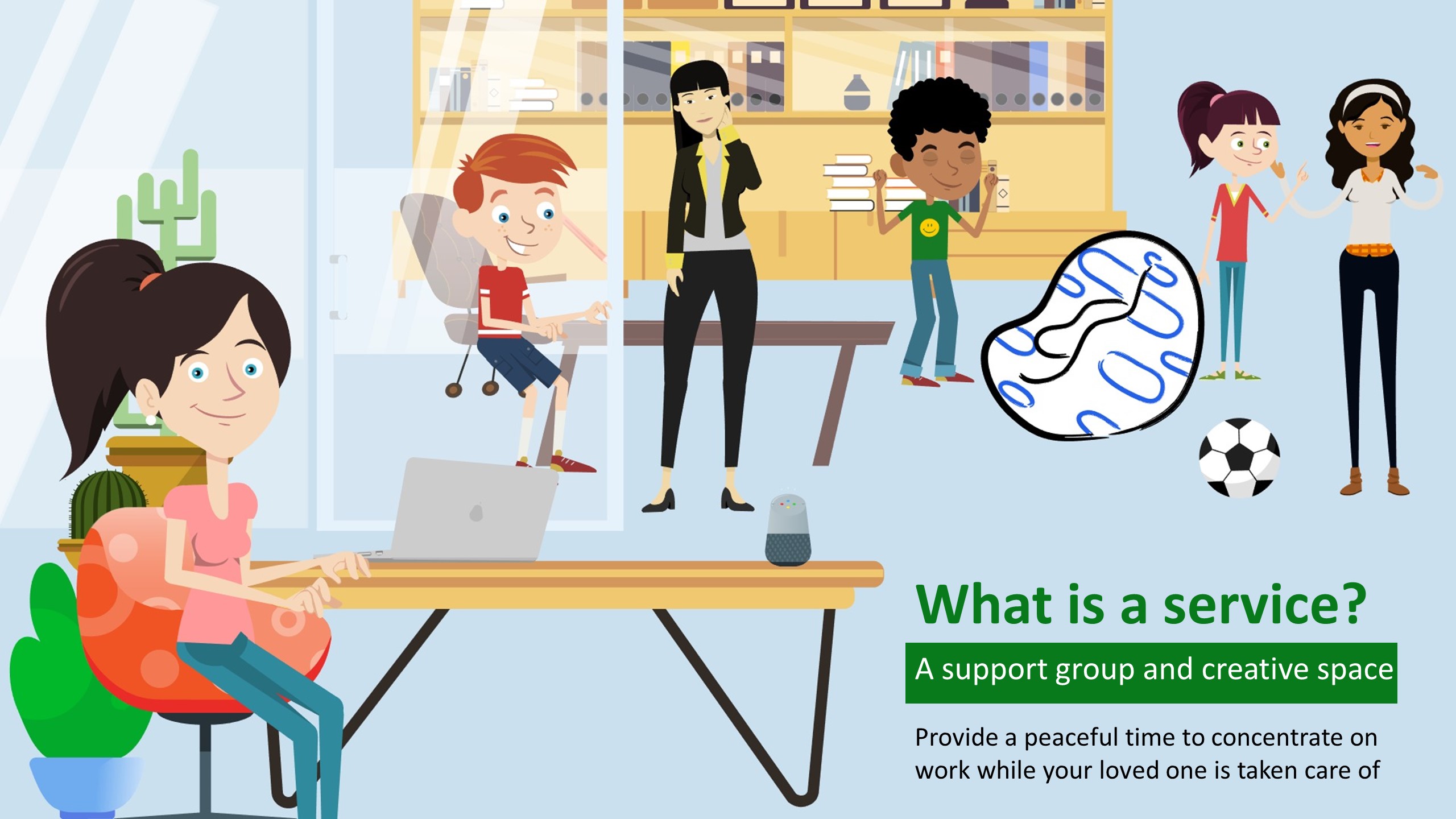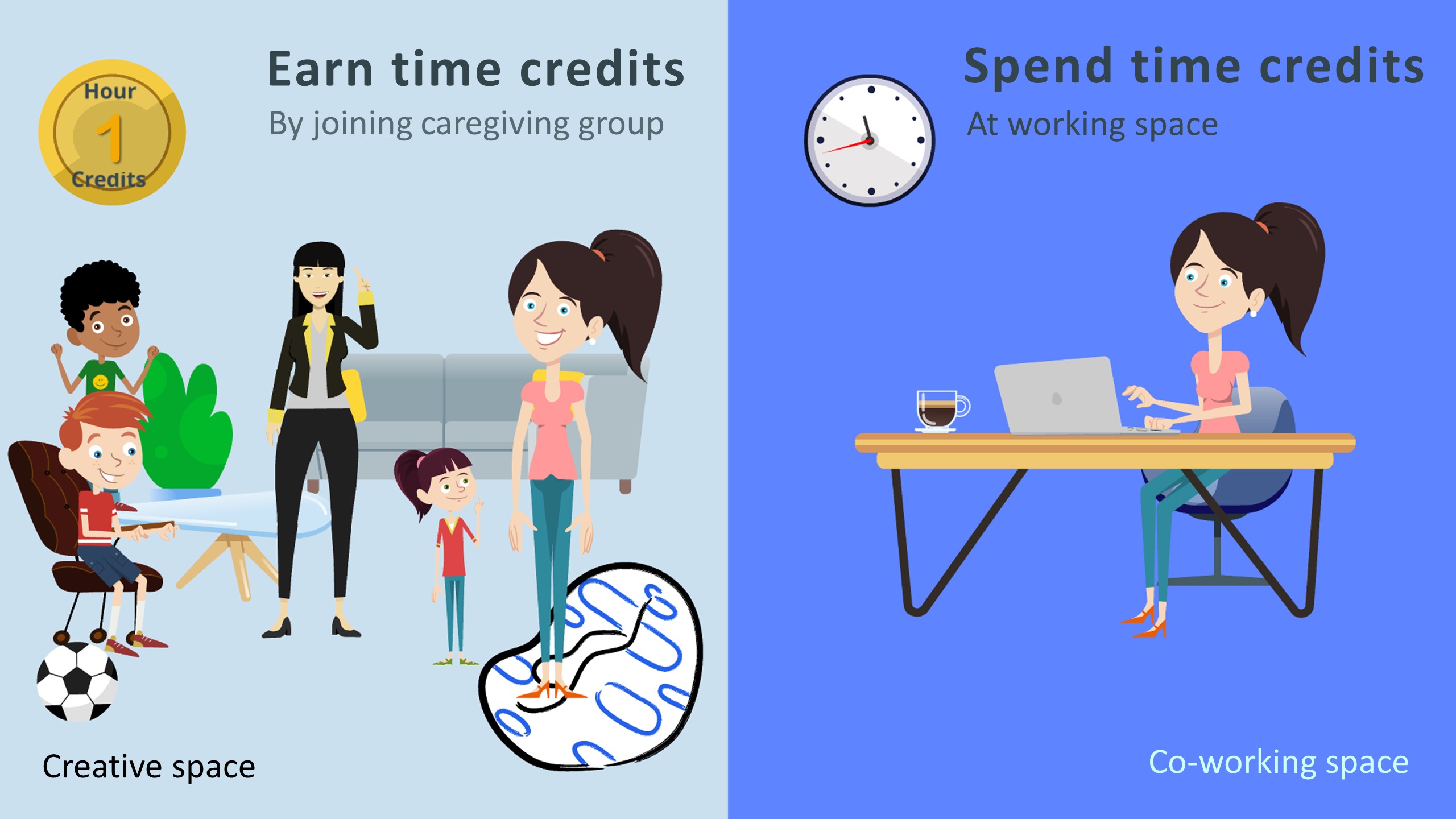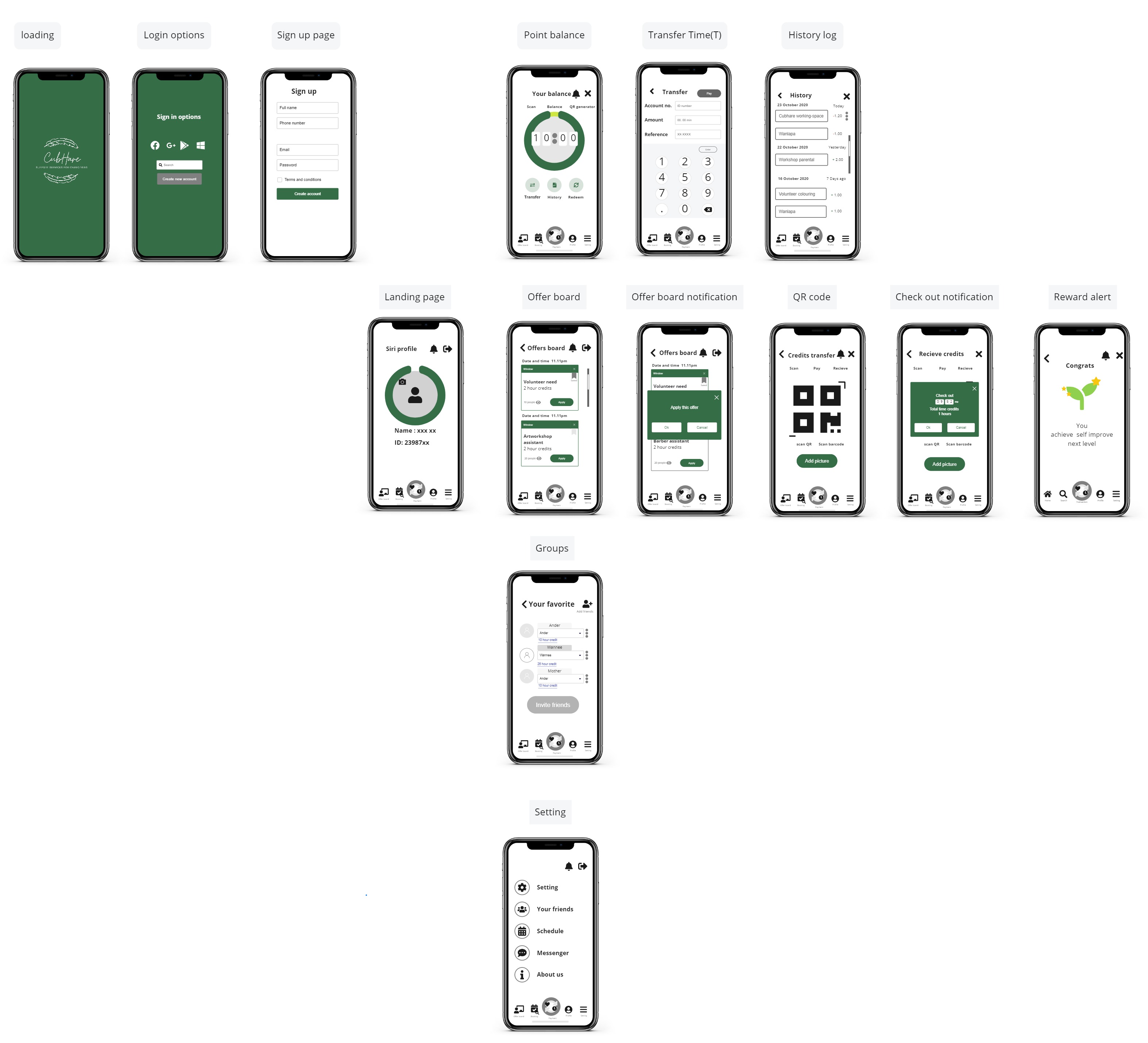
Onwara (Ning) Khongpaiboon
Service design to assist caregivers of adults with learning disabilities
Muta is a community space where caregivers can connect and use a time-based currency to exchange in services.
The aim of this project was to create a design solution to assist caregivers of adults with learning disabilities (LD) in Thailand. The problems associated with a learning disability is increasing yearly. Most of the primary caregivers are individual family members who provide caregiving services and obtain insufficient support from healthcare organizations. Subsequently, there are pressures to give up their jobs in order to care for family members with these disabilities. The challenge for Thai caregivers is how to maintain their career while simultaneously providing caregiving for their learning-disabled relatives. This research project used a qualitative, design thinking methodology. Using in-depth interviews and a user-centred design process a service design solution was developed to support these caregivers.
Muta service is a creative space for caregivers to connect, get support and provides co-working space. The service design involves an innovative time-based currency exchange system where group members either provide or acquire caregiving advice and support by exchanging their time. Muta has come from the word “Mudita” in Thai, which means pleasure that comes from delighting in other people's well-being. Mudita is a Buddhism state of mind of a parent observing a growing child's accomplishments and successes.
This project is a qualitative research project that aims to create a service design for family caregivers of adults with learning disabilities (LD) in Thailand. The challenge for primary caregivers is that they are often pressured to give up their jobs in order to care for their family members with a learning disability. Previous literature has raised issues associated with caregivers of learning-disabled people, especially around their challenges and coping strategies. However, there has been limited research focused on the challenges of family caregiving. This research contributes a more comprehensive understanding of the needs and challenges of caregivers of adults with learning disabilities in a Thai context.
Muta service design offers an alternative solution for a family caregiver to maintain their career while simultaneously caring for learning-disabled people. The service design provides a co-working space and caregiving support group. Muta is a volunteer service of family caregivers who support each other, by using time as a medium of exchange in the community.
Time credits were a key element of the design because the research found that there are things beyond money, like community building or taking care of family members, that need recognition. Those with membership to Muta will receive 1-hour of credit per 1-hour of time they spend undertaking volunteer activity with learning disabled people. These golden rules apply from the concept of time equality of time banking (Seyfang, 2004). Later on, they can spend time credits at the co-working space when they need it.
This research project applied a design thinking methodology, which is a user-centred design method. This research started by interviewing Thai caregivers, the target audience. After gathering data, the users' pain points were defined by using design thinking tools. The final service design outcome was developed by a product development cycle of rapid prototyping and testing. The design thinking methodology wass not only feasible but offered invaluable and desirable outcomes.
The problems associated with learning disabilities are increasing every year and they affect not only the individual but their families, their communities, and broader society. This research offers a potential solution to help caregivers to support each other in a sustainable way. Muta offers an opportunity for these caregivers to be supported, improve their quality of life, and have a chance of success in their chosen careers. It advocates for the value of their time because time is valuable, and everyone's time is of equal value.



